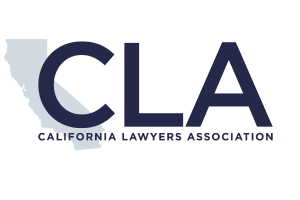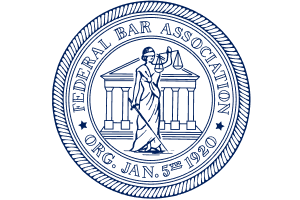Getting Results
Bank & Wage Levy
How to Remove a Bank Levy or Wage Levy
IRS Levied My Account
As Los Angeles tax and bankruptcy attorneys we know the IRS and other taxing agencies including FTB, EDD and CDTFA use tax levies as one of its many tools to collect on taxes which are owed by the taxpayer. It is one of the most powerful tools that the IRS or any tax agency has to collect on its taxes. Unlike other creditors, IRS, FTB, EDD and CDTFA are given the ultimate power to seize any assets that you may have to satisfy taxes which are owed to them without getting a court order. IRS, FTB, EDD, CDTFA are authorized to use vast array of data bases to find out where a taxpayer lives, works, banks, holds investment accounts.
IRS data bases will allow them to have information on your ownership in land, cars, boats, interest in businesses and any other assets which can be sold or liquidated to satisfy taxes which may be owed.
Taxpayers are usually given a short notice by the IRS, FTB, EDD or CDTFA that their properties will be seized by the government and are told to make appropriate arrangements to prevent such seizure.
A bank levy and a wage levy are two most common tax agency legal actions that the Internal Revenue Service (IRS), Franchise Tax Board (FTB) Employment Development Department (EDD) or California Department of Tax and Fee Administration (CDTFA) may take to collect unpaid taxes.
A bank levy is a legal action under the tax code in which the IRS, EDD, FTB or CDTFA seizes funds from a taxpayer’s bank account to pay off their tax debt arising from income tax, payroll tax or sales tax obligations. The IRS can issue a bank levy to any financial institution in any state or foreign country where the taxpayer has an account after certain notice requirements, including retirement, checking, savings, and investment accounts. The bank must turn over the funds usually within 10- 20 days to the IRS, FTB or CDTFA, and the taxpayer will typically have a limited time to challenge the levy or make arrangements to pay off their tax debt.
A wage levy is a legal action under the tax code in which the CDTFA, FTB, EDD or IRS garnishes a taxpayer’s wages to pay off their tax debt arising from income tax, payroll tax or sales tax obligation. The IRS, FTB, EDD or CDTFA can issue a wage levy to the taxpayer’s employer at any time after certain notice requirements, who must then withhold taxpayer’s wages and send it to the IRS, FTB, EDD or CDTFA. The amount of the wage levy withheld will depend on the taxing agency that is trying to collect the tax debt as well as taxpayer’s income and the amount of their tax debt to IRS, FTB, EDD or CDTFA.
Both a bank levy and a wage levy can have significant financial consequences for a taxpayer, and it is important for taxpayers to take steps to resolve their tax debts in a timely manner to avoid these actions. If you are facing a bank levy or wage levy by the IRS, FTB, EDD or CDTFA, it is advisable to seek the assistance of a tax lawyer who can help you understand your rights and options and advise you on the best course of action to take.
To obtain a release from an IRS, FTB, EDD or CDTFA tax levy, you will need to take steps to resolve the underlying tax debt that is the basis for the levy. Here are some common options that may help a taxpayer avoid either a bank levy or wage levy:
- Pay the tax debt in full – Since the taxing agencies charges interest and penalties which can exceed 30% combined, if you have the financial resources to do so, you should pay off the tax debt in full to get a release from the levy. This may involve making a one-time payment or setting up a payment plan with the IRS, FTB, EDD or CDTFA.
- Offer in Compromise – Negotiate a settlement: If you are unable to pay the tax debt in full, you may be able to negotiate a settlement with the IRS, EDD, FTB or CDTFA. This could involve paying a reduced amount in exchange for a release from the levy. You can learn more about this option on our website under Offer in Compromise.
- Tax Court or Appeal – Challenge the tax debt: If you believe that the tax debt bill that you received from IRS, FTB, EDD or CDTFA is incorrect or that you do not owe the amount claimed by the IRS, CDTFA or EDD, you can challenge the tax debt by filing a protest or appealing the IRS’s decision. This may involve providing evidence to support your position and presenting your case to the appeals division of IRS, EDD, CDTFA or a tax court.
- Tax Bankruptcy – Filing bankruptcy for taxes owed to IRS, FTB or CDTFA is a complicated procedure. However, with proper legal planning and strategic review of your tax history, it is an effective legal procedure to resolve certain tax problems. Discharging your tax debts through bankruptcy court will depend on many factors which needs to be reviewed by a tax bankruptcy attorney. Some factors including the type of tax debt you have: income tax, payroll tax, sales tax, excise tax, the amount of the tax debt, and the timing of the t ax debt must be carefully considered before filing a tax bankruptcy case. In addition, to discharge tax debts through bankruptcy, the taxes must meet certain criteria under the US Bankruptcy Code. For example, the taxes must have been due at least three years before bankruptcy filing. In addition, at least two years must have passed since tax returns were filed prior to you filing for bankruptcy. There are other procedural and technical requirements that must be met under the bankruptcy code and tax code so your case must be carefully reviewed with a tax bankruptcy attorney before proceeding.
It’s important to note that getting a release from an IRS, FTB, EDD or CDTFA levy can be a complex process. If not properly addressed, tax levies can have a devastating effect on most taxpayers. You may lose your wages, holdings in your bank or investment accounts. Your retirement savings may be liquidated and your cars and non-cash assets may be seized and sold at an auction. It is advised that you contact a lawyer immediately if you are threatened with a levy. Otherwise, your finances may suffer irreversible damage.





















